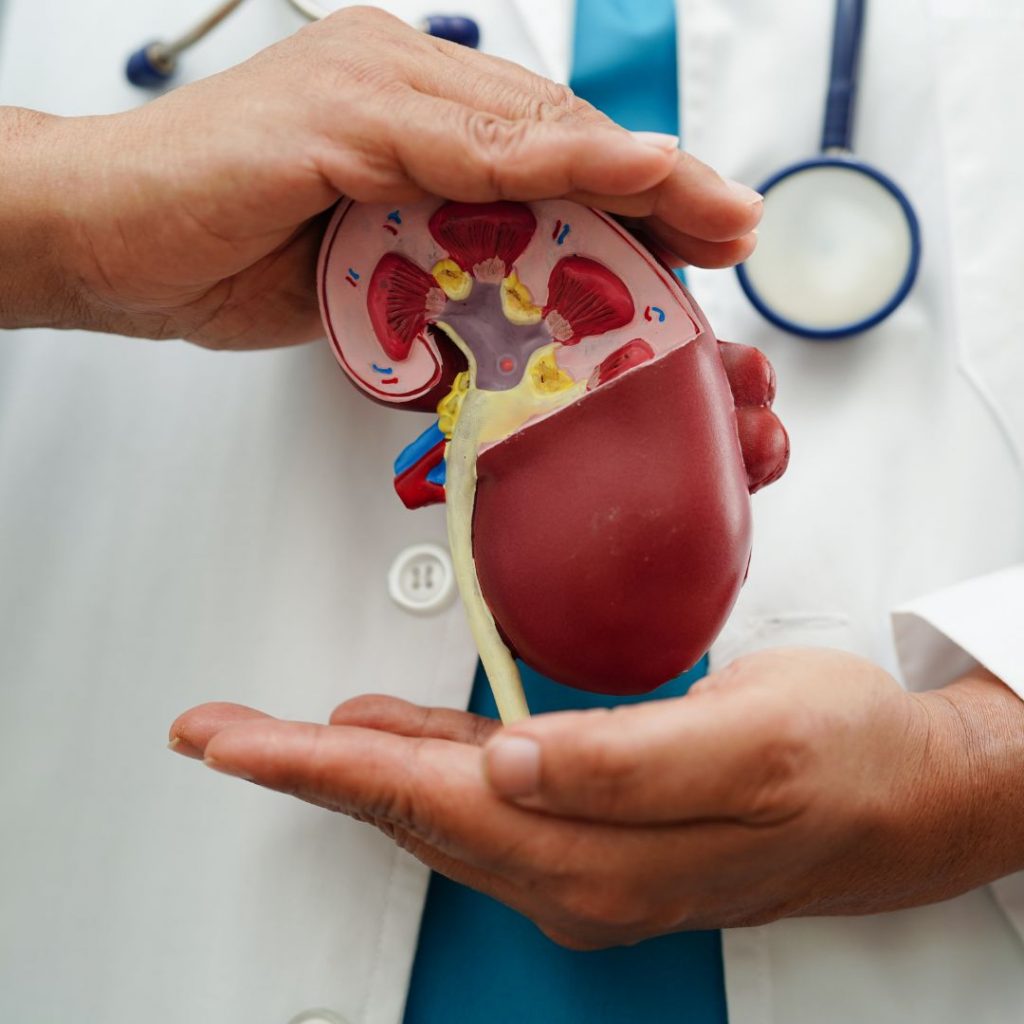World Kidney Day is observed every year on the second Thursday in March to raise awareness about the importance of this vital organ. This global initiative, launched by the International Society of Nephrology (ISN) and the International Federation of Kidney Foundations (IFKF), seeks to educate the public about the prevention, early detection, and treatment of kidney diseases.

The role of the kidneys in the body
The kidneys are the silent heroes of our body, performing a range of crucial functions that maintain internal balance. Located on either side of the spine, below the ribs, they filter approximately 50 liters of blood daily, removing waste products and excess fluid through urine. However, their role extends beyond just cleaning the body – they regulate blood pressure, stimulate the production of red blood cells, maintain electrolyte balance, and activate vitamin D, which is essential for bone health. When the kidneys are compromised, the entire body suffers the consequences, highlighting their extraordinary importance.
Kidney Diseases and Their Causes
Kidney diseases often develop gradually, with chronic kidney disease (CKD) becoming more common in modern society. It is estimated that more than 850 million people worldwide suffer from some form of kidney disease, and the number of deaths caused by these conditions exceeds three million annually. The most common causes include diabetes and high blood pressure, which damage the sensitive blood vessels in the kidneys, gradually impairing their function. In addition, various inflammatory processes, genetic predispositions, polycystic kidney disease, and recurring urinary infections can also contribute to disease development.
One of the severe kidney diseases is kidney cancer, which is often discovered only in later stages because it does not cause noticeable symptoms in the early stages. When symptoms such as blood in the urine, lower back pain, or weight loss appear, the disease may already be advanced. Therefore, regular kidney check-ups are crucial for early detection and successful treatment.

How Do Kidney Diseases Develop?
The development of kidney disease is influenced by numerous factors, with lifestyle habits and the individual’s health status playing a significant role. Diabetes and hypertension are the most common culprits, as they silently but systematically damage kidney filters, reducing their ability to clean the blood. Obesity, an unhealthy diet rich in salt and fats, insufficient physical activity, and smoking further increase the risk. At the same time, long-term use of certain medications, especially nonsteroidal anti-inflammatory drugs, can contribute to kidney damage. A fast-paced lifestyle, stress, and lack of sleep can also negatively affect kidney function, making prevention even more critical.
Why Is Prevention Key?
Since kidney diseases often progress unnoticed, prevention is the best way to avoid serious complications like kidney failure, dialysis, or transplantation. A healthy lifestyle can significantly reduce the risk of developing kidney disease. A balanced diet with limited salt and processed foods, regular physical activity, and adequate hydration are essential for preserving kidney function. It is also important to monitor blood sugar levels and blood pressure, regularly check kidney function, especially if risk factors are present, and avoid harmful habits such as smoking and excessive alcohol consumption.
Measures to Preserve Kidney Health
To preserve kidney health, it is recommended to:
- Maintain a healthy diet: Reduce salt and processed food intake.
- Regular physical activity: At least 30 minutes of moderate activity daily.
- Control blood sugar levels: This is especially important for people with diabetes.
- Monitor blood pressure: Keep it within typical values.
- Drink enough fluids: Maintain hydration.
- Avoid smoking and excessive alcohol intake: Both habits harm the kidneys.
- Avoid unnecessary use of medications, especially nonsteroidal anti-inflammatory drugs that can damage the kidneys.
Advancements in Kidney Disease Treatment
Modern medicine offers increasingly precise methods for diagnosing and treating kidney diseases, including kidney cancer. One of the most significant technological advancements in the last decade is the introduction of robotic surgery. In Croatia, the Priora International Medical Center is proud to implement the Da Vinci Xi robotic system, which enables minimally invasive kidney surgeries with high precision, reduced complication risks, and faster patient recovery.
This robotic system is used for partial and radical nephrectomy – the partial or complete removal of the kidney in cases where a tumor is present. For smaller tumors, partial nephrectomy is often performed, removing only the diseased part of the kidney while preserving the rest of the healthy tissue to allow the kidney to continue its function. In cases of larger or more aggressive cancers, a radical nephrectomy is performed, removing the entire kidney.
This technology represents a revolution in kidney disease treatment, offering surgeons greater precision and patients less invasive procedures with shorter recovery times.
Raising awareness about kidney health and adopting healthy lifestyle habits can significantly reduce the risk of disease and improve quality of life. On World Kidney Day and throughout March, let’s remind ourselves of the importance of our kidneys and take steps toward their preservation.